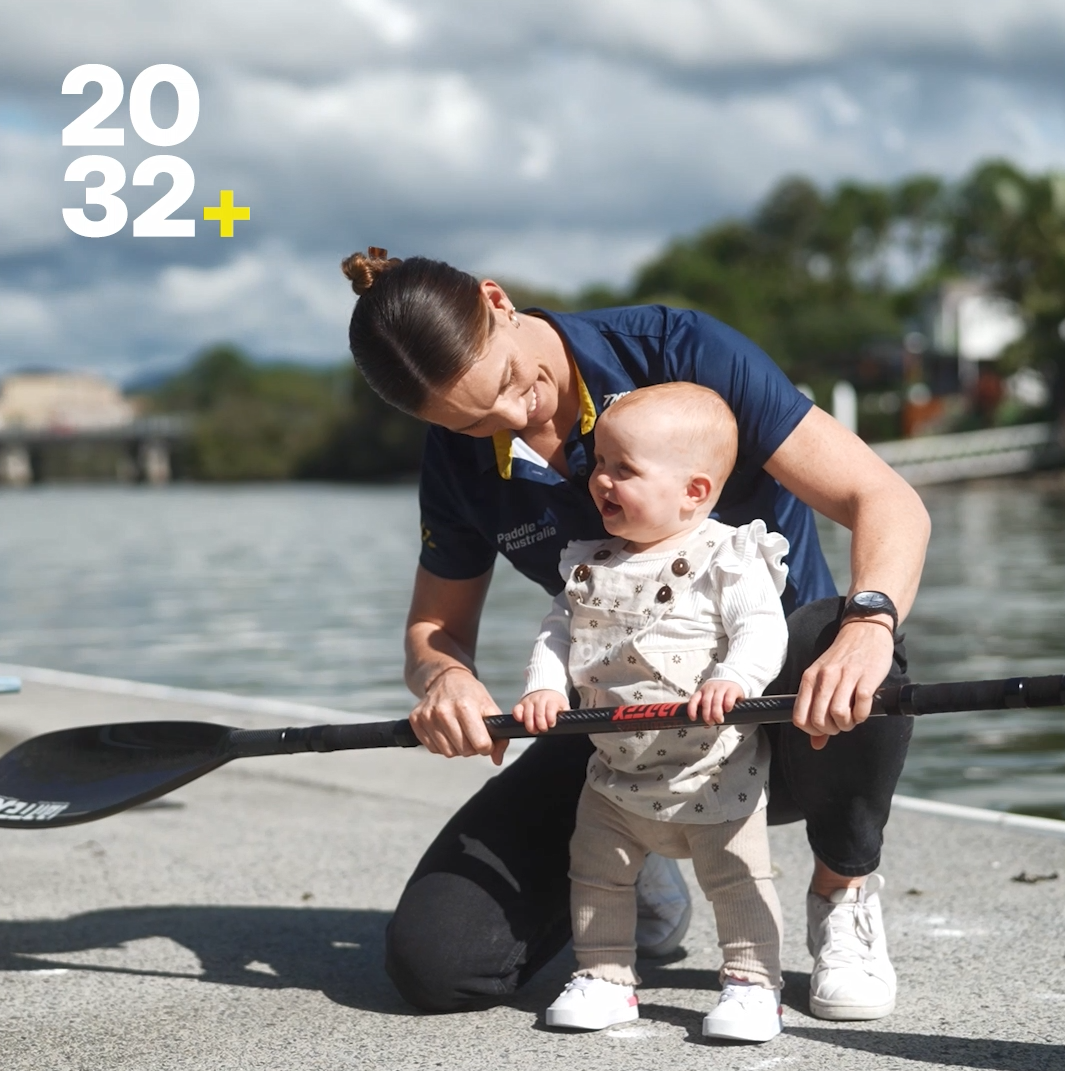Alyce Wood winning well on the way to Paris 2024
Two-time Olympian and world champion Alyce Wood epitomises the vision of the HP 2032+ Strategy, “we win well to inspire Australians”.
Just a year from having her beautiful daughter Florence, Alyce has her sights set on Paris 2024. And with the support of Paddle Australia, her coaches and fellow athletes, she’s making sure her qualification journey supports her not only being a world’s best paddler, but also as a person.
This is her win well story.
“Florence was around 10 months and it was my first trip overseas away from her and my husband,” Alyce said.
“Going into the trip, I was quite optimistic. I knew five weeks is a long time to be away from home. But I'd also you know, I really worked myself up and put myself up for that trip. And I knew that so many people have done it before me.
“I went over there to Italy first for a training camp and then I headed into Hungary for World Cup one. I had a really, really good performance and ended up fourth in the K1. That made me feel like, you know, I'm on the right path. I'm in the race basically, and I'm close to that podium. So, it gave me a lot of confidence and I guess it showed me that what I'm doing is really great.”
Following the great performance in Hungary, the whole team was scheduled to decamp to Switzerland for a three-week altitude camp.
Alyce said: “The more I thought about altitude, I guess the more anxious I got about being away from Florence for longer. I guess all those emotions, those that anxious energy built up, you know. The feeling of wondering, what if I went home and what if I stayed?
“I just felt like I needed to be home. And it was a decision that had been on my mind for a little while, but a decision that I guess I didn't realise was okay to make.”
Alyce’s struggle hadn’t gone unnoticed by the rest of the team, which included National Performance Director Kim Crane.
“Alyce also came to me and shared that she was really struggling with the decision to continue on for three weeks,” Kim said.
“So, in that moment I knew that we had to work pretty quickly to be able to facilitate some conversations. And obviously the most important one at that point was with Alyce.
“It was a pivotal moment for our program where I reflected that this is a winning well moment and we needed to prioritise psychological well-being ahead of physiological advantages for potentially going to altitude camp.
“Full credit to Alyce in the way that she presented herself to not only me but other staff members, probably most importantly to her head coach. In that moment she was quite vulnerable but incredibly courageous and picked up a conversation with her head coach to say, this is how I'm feeling.”
Kim said it was crucial Alyce was the one to make the ultimate decision about returning home or continuing on with the planned altitude camp.
“We've done a lot of work bringing in vulnerability as a strength, as a leadership skill. Alyce courageously led the conversations that she needed to have with support from other athletes and staff around her. Everybody just rallied around Alyce to show her that she had permission to own this decision.
“But that doesn't just happen, there's a whole heap of things that need to happen before that. We needed to ensure that there was some pretty significant transformational change here in the organisation from a cultural perspective. That led to putting a really clear strategy in place with a clear purpose that regardless of your role in the high performance program, we get up every single morning to support our Australian athletes to become the world's best paddlers and people.”
“I think the acknowledgement that we're people first and athletes second is the most important thing to me,” Alyce said.
“Quite often in the past we've been, I guess, puppets of the show and now to be able to prioritise our own mental health, mental well-being and to be able to know that we can really be comfortable in our space and in and on board in our environment is really special.
“I hope that my story, you know, really shows people that this is exactly what's happening and we're seeing some really tangible change within our system right from the top down. I think it's an exciting journey as we head towards Brisbane in 2032 and to see the athletes really be able to be empowered by the whole system is really special.”
